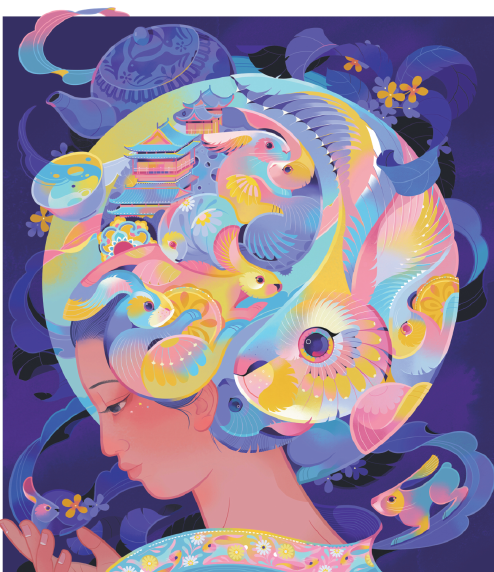

It could be arguably assumed that as one ages, their emotional bond with the moon intensifies, bearing that imaginable vision in mind, extra clear in the dead of night, of themselves and their beloved ones, no matter how distant, sharing the same moonlight.
When they've seen more of life's vicissitudes and fatalistic loneliness, the moon's solid companionship becomes even more precious, just as the unwavering support they draw from the family behind them and their roots, whose gentle gaze shimmers like moonlight piercing the darkness.
In the Chinese Lunar Calendar, there are three major celebrations of a full moon, a metaphor of the completeness brought along by a family reunion.
The first of a brand-new year, the Lantern, or Yuanxiao Festival, is when the year gone becomes past and with that pure, round moon hanging in the night sky rising hope is infused into new year resolutions, and one feels determined and omnipotent to bring their family a better taste of life.
The seventh full moon, called the Zhongyuan Festival or the "Ghost Festival", is to mourn lost ones with an unspoken wish for their spirits knocking at the door or visiting in dreams.
Due to the many connotations with which people have endowed autumn through the ages, both joyful and sorrowful, the Mid-Autumn Festival is only just barely overshadowed by the bustle of Spring Festival, and is constantly referenced in literature and art.